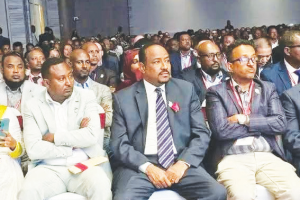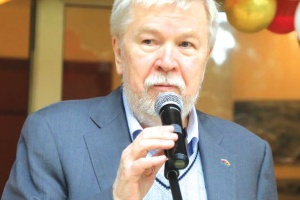Abel is a well-know patriot. Whenever he heard about the spectacular victory of Adwa, something that he could not express in words pinches him in the corner of his heart apart from tears rolling down over his cheeks like a river escaping a dam every so often. He is a laid back.
Likewise, his blood boils whenever somebody belittles the success stories of the ancient Ethiopian heroes and heroines who had paid huge sacrifices and gave their all for their motherland. Above and beyond, Abel could not swallow his anger whenever ignorance pertaining to his country arose. Though, he is not a hot-headed person, he flows into rage when somebody gets off the track.
Abel loves his country more than anything under the sun. He always reads Ethiopian history for the reason that he feels energetic and lively at the drop of a hat. Whenever he stumbled upon tourists he tossed some points around Ethiopia and its people time and again. Every so often, he makes an effort to make stunning turn in his efforts. He believes in sitting down and hash things out apart from showering the youth to know more about Ethiopian history.
Whenever he listens to songs which praise the ancient Ethiopian patriots, he gets like an electric shock feeling that runs through his body in the blink of an eye. Year on year, he happily celebrates the victory of Adwa and Patriots day decorating himself head to foot with eye-catching Ethiopian traditional clothes. At whatever time Abel talks about the victory of Adwa he fights back the tears more often than not.
As he is on familiar terms with the fundamentals of Ethiopian history, he gets angry whenever somebody talks bad about Ethiopia. He does not get tired of taking about Ethiopian heroes and heroines. He hates people who have a shocking contempt for Ethiopian history. Whenever he comes across youngsters on the streets of Addis Ababa, he asks them how much they know about Ethiopian history. If they do not know, he gets mad and embarked on showering them with pieces of advice to be on the right track. He strongly believes the youth should know more about their country’s history instead of attaching significance to foreign cultures.
“As most youngsters do not know much about their country’s culture, history and norms, they place value on foreign cultures, traditions and norms. Unless the youth know the history of their country like the palm of their hands, it will be difficult to be on the right track. They should be proud of themselves as their country’s success stories are incomparable with the history of others,” he said to himself.
He kept on saying though Ethiopia is heading in the right direction its youths do not know much about the great history of their country. If they had known much about their country, they would not have gotten off the track. Over the past two decades, the unreformed government had washed off the sense of unity in addition to striking out history courses from the curriculum. Hence, the youth had lost the whole thing they had and fallen from grace.
This being the case, passersby were making fun of Abel nonstop. Some of them were shaking with laugher while others whispering in one another’s ears in this regard. Honestly speaking, Abel does not give a fig what whoever said about whatever. He teaches next-door neighbors Ethiopians history free of charge.
One fine day, as usual Abel headed straight to a certain cafe found in the heart of Arat Kilo to have a cup of tea. Many things were flickering through his mind pertaining to the victory of Adwa. Next to him a university student and a foreigner were talking about the victory day of Adwa.
The foreigner “Why do Ethiopians celebrate the victory of Adwa? What is it all about?” The student “It is all about the battle of Adwa. ”
The foreigner: “What is the battle of Adwa all about?”
The student: I don’t know the detail.
This time, Abel got very furious as the poor knowledge the student displayed about Menelik II. For Abel such a tragedy was tear-jerking. He did not know what he had to do. He repeatedly cursed the unreformed government for phasing out history courses from the curriculum of the country and narrowing the horizon of most Ethiopian students.
After a long fight with his thoughts, Abel approached the two friends in fear and trembling. Then he said, “I have been following your conversations. You really made me feel small. If I were you, I would read quite a lot of historic books. You must separate the sheep from the goats apart from knowing more about Ethiopia’s history. To get to the point, March is an earth-shattering month for all Ethiopians seeing that it is the time that fellow citizens had registered spectacular victory over Italy at the battle Adwa.”
The student and the foreigner kept on nodding their heads. The former was a little bit nervous and shivering with fear.
Abel continued “Mobilizing Ethiopians, Menelik had scored an important victory through his effective war strategies. Without exaggeration, Ethiopia is known worldwide for winning enemy forces with no trouble. The different Nations, Nationalities and Peoples of Ethiopia had paid huge sacrifices for their motherland with the intention of chasing out the Italian troops from the perimeter of Ethiopia. Ethiopia kept its identity and culture due to these victory .Such virtues could have been eroded.”
The foreigner “ Is that all?” Abel kept on saying the victory of Adwa had inspired other African countries who were under the yoke of colonialism and under the feet of death for years. Africans had got a lesson from Ethiopians victory and kept on fighting to drive out colonizers from their respective countries. While we are on the subject, Menelik II had taken important steps with the purpose of strengthening and modernizing Ethiopia.
The student “What did he contribute for Ethiopia?”
Menelik II had constructed a railroad, made an effort to end the slave trade, restrained the feudal nobility, introduced telephone, mill, postal service, currency, tap water, shoes, musical school, typing machines, electricity, modern treatment, cinema, hospital, red cross, bicycle, hotel, printing press, plastic, newspaper, bullet factory, drug store, appointment of ministers, automobile, among others.
The foreigner “ What was the main cause of the war?”
To begin with, the Treaty of Wuchal was the fulcrum for the war of words that terminated in Adwa through its Article 17 which, in the Italian-language description merely, capitulated unreservedly our country’s independence. The Italians misconstruing the article on grounds of translation were trying to impose themselves on Ethiopia. In due course, his reaction was re-evaluated with the intention of having out of the ordinary elucidation and an awareness of continuing relations in the midst of Italians, the emperor, and a wide spectrum of princes.
Abel added “ the mistranslation of article 17 was a well-situated invented story for the emperor which gave the green light to Menelik’s representative to go to Rome and sign the Treaty of Wuchale and broker additional convention. To the surprise of everyone, a year later, the emperor embarked on unraveling himself from the partnership with Italy that had smoothed the progress of his rise. By that time the emperor was ready to countenance whatever consequences the steps may bring about.” Following Abel’s explanation, both the student and foreigner turned out to be infinitely happy. This time, Abel rose up to his feet, forebode them goodbye and set in motion taking a walk. All of a sudden, somebody gave a pat on Abel’s back.
When Abel turned around, the student was standing behind him. He said, “I am really very proud of you. You have really explained in black and white the victory of Adwa and the contribution of Menelik II. I am really ashamed of myself for not knowing the history of my country. I really felt small when the foreigner asked me about Ethiopian history. Sadly, my friends and I are on familiar terms with the inside out of English primer league and footballers’ names. We place much emphasis on European cultures. We know the nitty-gritty of major events celebrated in the world. But we are ignorant of our history. Without a root how could a tree imagine to have branches? I learnt a lot of lesson from you.”
Do you like to know more about Ethiopian history? Asked Abel. “Yes,” replied the student. I have got many history books. I live around Sidist Kilo. You can give me a call anytime so that I can borrow you different books. They exchanged their numbers and parted ways. The instant the student went home, Abel kept on reading about Ethiopian history. He began reading different stories related to the victory of Adwa. He turned out to be very emotional considering the success stories of Ethiopian patriots. He spent the night lecturing younger siblings about Victory of Adawa and its lofty meaning to Ethiopia ,Africa and freedom fighters. He made up his mind to attend the celebration of the victory of Adwa and bought an assortment of traditional clothes and banners which demonstrates Ethiopianism.
The Ethiopian Herald March 3,2019
BY ADDISALEM MULAT





